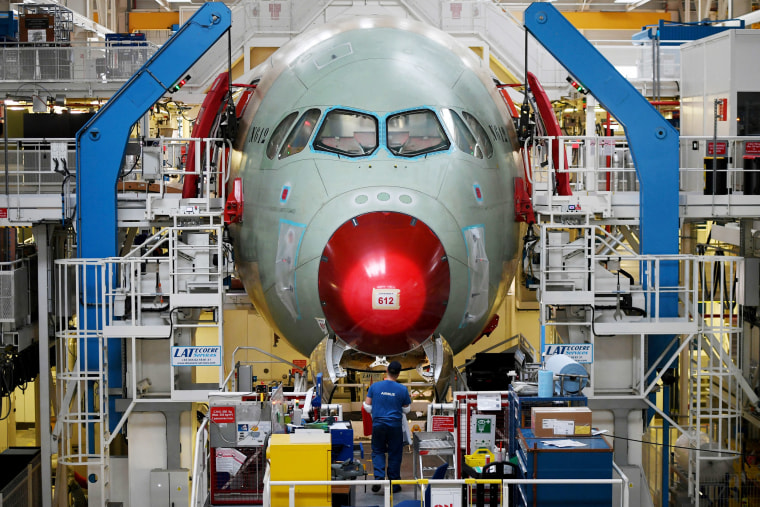The American Federal Aviation Administration (FAA) has alarmingly suggested that two of the most renowned global aircraft manufacturers, Airbus and Boeing, might have incorporated ‘counterfeit’ titanium in their planes. This accusation could potentially lead to significant scrutiny of their production and procurement processes, raising questions on the safety of their aircraft.
The FAA report claimed that there was suspicion around the use of counterfeit titanium sourced from a Russian producer known as Avisma. The regulatory body maintained that this questionable material was used in both Airbus and Boeing planes. However, it hasn’t specified the parts of the aircraft where this substandard titanium could have been used. The revelation could pose severe safety risks, given the highly stringent technical specifications and safety standards prevailing in the aerospace industry.
Airbus and Boeing, the world’s two largest aircraft manufacturers, are the titans of the industry, serving the majority of global airlines. Any potential susceptibility of these planes could potentially derail not just the reputation of these manufacturers but also impact airlines relying heavily on them. These brands are chosen for their assurance of quality and safety. The inclusion of substandard materials, if proven, could feed into widespread concern among air travelers, particularly because titanium is known for its density, strength, and resistance to corrosion – qualities that are crucial for building aircraft.
Titanium forms an integral part of the aircraft manufacturing process. Primarily utilized in various engine parts, landing gears, and other smaller components, it offers a high corrosion resistance, heat resistance and a higher strength-to-weight ratio as compared to other metals. The use of counterfeit titanium, however, could compromise on these qualities. As such, it brings into sight an ugly manifestation of cost-cutting and unethical sourcing in the highly sophisticated and monumental process of producing aircraft.
In response to these allegations, both Airbus and Boeing have acknowledged the concerns raised by the FAA, claiming a thorough investigation is underway. They’ve further asserted their commitment to safety, emphasizing that any potential risk to passenger and crew safety will be met with the utmost severity and rectitude. They are working meticulously with their suppliers to ascertain the source of their titanium and verify its authenticity. Here, it is important to note that they maintain complete co-operation with the regulatory authorities.
Key to understanding the implications of this news is that the FAA has not yet ordered the grounding of any Airbus or Boeing aircraft. The clear-cut implication of counterfeit titanium parts in the operation, performance or safety of the plane has not been concluded. The process is in its investigative stages, and should these suspicions be confirmed, it will result in immediate action.
This revelation does signify a pivotal moment for the aviation industry – not just for Airbus and Boeing. It highlights the need for stringent quality checks and enhanced scrutiny of the supply chain in an industry where safety is paramount. This incident stands as a poignant reminder of the critical association between sourcing, supply chain management, procurement ethics, and the ultimate safety of end-users. In the final analysis, it is a wake-up call for the industry to prioritize safety and quality over any other considerations.




